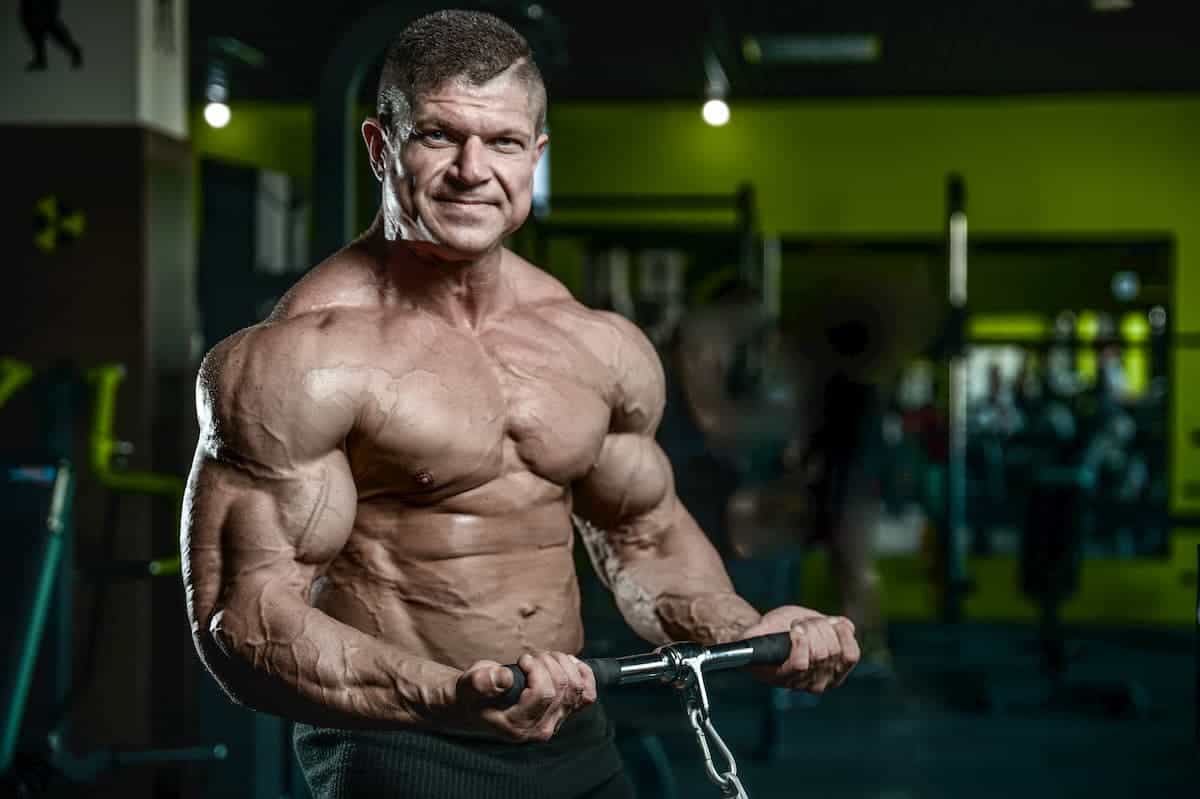Coaches are an integral part of an MMA fighter’s training routine. Developing strength, speed, and stamina in a fighter is one of a coach’s leading roles. A fighter who has a decent amount of potential in him won’t go anywhere if not guided by a coach.
Many MMA fighters that have been widely successful in their careers take the path of becoming an MMA coach and trainer. Nothing is more prestigious than helping out other fighters like you. However, the way to becoming a master has many nuances that you should consider.
This blog will summarize how you can start your journey as an MMA conditioning coach and trainer through NESTA and the Mixed Martial Arts Conditioning Coach Certification Program.
An MMA Overview
MMA is a unique martial arts genre even though an inter-disciplinary combat sport requires some dedication to mastering the various techniques that the MMA combines worldwide.
Just because one has been a great coach in boxing, karate, judo, or Brazilian Jiu-Jitsu, it doesn’t mean that one will easily transition himself into an MMA coach trainer. When it comes to MMA, you need a lot more than merely being good at one style.
So, the question arises, what do you need to do to become an MMA coach? Keep reading to find out.
Train in Some Fighting Discipline
The first thing that you need to understand is that competitive skills don’t translate to teaching skills. However, they aren’t completely illusory either. The work ethic, the grind, the firsthand experience all of this can only be obtained if you have been in the shoes of a beginner in martial arts.
If you have never experienced firsthand the difficulty of MMA, you won’t adequately guide your students. Many nuances associated with martial arts such as conditioning, dieting, pain, drilling, cutting, physical and mental stress all of this must be familiar to you.
Having firsthand experience in MMA competition and MMA training aspects will allow you to be a better coach because you will be acquainted with the entire grind involved with MMA training.
If you have never felt yourself the pain, the intense desire to give up, the exhilaration, then you won’t be able to understand the concerns of your students, let alone guiding them on their journey.
Moreover, there’s a relationship between the teacher and the student, which needs to be present to learn valuable lessons from the teacher. If you have never been in the student’s shoes, you won’t be able to relate to your student’s agony and therefore won’t develop a relationship.
Participate in MMA Tournaments or Competitions
The next step after you train in MMA is to participate in MMA tournaments and competitions. Traditional sparring with your fellow MMA practitioners will not cut it. You have to join the league of actual competitors.
The reason for this is just about experience. MMA tournaments are saturated with wins and losses. The student you will train will likely encounter at least one loss in his journey and want to give up.
If you have never felt the agony of a defeat, then you won’t be able to console your students the way you are supposed to. A good coach not only stays with his students in the moments of victory but also their failures.
If you have experience competing in MMA tournaments with experienced fighters, then you will be able to guide your students through their journey to become a champion. A good fighter doesn’t always make a good coach, but fighting experience does count if you want to be a coach.
Another thing is fear. Your students will probably be afraid to step into the ring when they have their first competition. If you have experienced that fear yourself, you will help them overcome their first match concerns.
A crucial part of competing on a tournament level is rules and stipulations. If you have competed in a tournament, you will be well acquainted with those rules and stipulations and effortlessly explain those stipulations to your students.
Focus on Developing a Structured Body of Knowledge
Many coaches make the mistake of teaching their students from the bits and pieces from their experience. Experience cannot substitute a well informed and structured body of knowledge.
You need to be aware of all the nuances associated with the world of Mixed Martial Arts. This involves learning from an expert that has learned from a well-structured curriculum.
Having a structured body of knowledge makes you a better coach because you can better assess your student throughout his journey. How long should he train, how many styles he needs to learn, and how much conditioning he needs? To answer these questions, you need to follow a structured form of knowledge in MMA.
After forming a structured body of knowledge, you will understand the roadmap of success in Mixed Martial Arts. Furthermore, you will have a curriculum in your hands to teach from.
Get Some Professional Certifications
The next in your journey to becoming an MMA coach is to look for professional certificates. There are hundreds of professional MMA coach training courses available out there. You can take these courses to add a certificate to your portfolio.
Having an MMA coaching certificate helps MMA students to trust you as a coach. This also enhances your authenticity as a coach. Having a certificate means that you are someone who can be counted as a coach.
A certification will also be an excellent way to put all the knowledge, experience, and grind you have accumulated throughout your life to a test. A certificate will be the final piece of credibility you need to acquire on your road to become an MMA coach.

Train MMA Fighters
Your training does not end here. After you become a certified coach, you need to focus on developing your teaching and articulation skills. The more time you spend on teaching new students, the more your teaching skills will grow.
What Is the Role of an MMA Conditioning Coach and Trainer?
To be a good coach is to have experience training different kinds of fighters. Each fighter learns at his own pace, and it is important to teach an MMA student on his own merits.
As coaches, MMA fighters gain credibility by training fighters who turn out successful or turning mediocre fighters into good fighters, which brings us to our first point!
Assessment
First and foremost, your job as a coach is to obtain metrics and numbers on your fighter. You need to evaluate every aspect of your student’s behavior, from his movement to his strength. A critical evaluation of your student allows you to determine what kind of training your student might require.
Movement Assessment
You need to identify the mobility issues in your fighter. Stance and movement is the basic building block of all martial arts. Your job as a coach is to assess your student’s movement, so he exerts more force and uses less energy.
Strength Assessment
Strength is another aspect of training that you need to undertake as a conditioning coach. Your student does not have to be very strong as MMA won’t require that. However, fighters need to have a decent amount of core strength to compete.
As a coach, your job is to recommend the right exercises and drills to your students to develop the strength required to compete in MMA.
Conditioning Assessment
Conditioning is one of the basics of all martial arts. If your student can not perform the maneuvers for a decent amount of time, he will be putting himself at considerable risk when he competes in MMA.
These are the questions you need to concern yourself with. Can your fighter perform the basic exercises for a fair amount of minutes before exhausting himself? Can your fighter’s upper and lower body generate enough force? Can your fighter’s body sustain the explosiveness for a long time?
You will be helping out your MMA fighter in conditioning his upper and lower body so he can reach an entry-level position to compete with other fighters. Your fighters need to just as agile, mobile, and strong as the other fighters, if not more.
Scheduling Training
You also need to do a conditioning assessment and strength assessment to schedule your MMA fighter’s training routine. Determine where your fighter is lacking and recommend drills and exercises to overcome that liability.
This involves cutting back on exercises that might inhibit a fighter’s current routine, such as cutting back on squats and leg exercises if the fighter trains his leg work in the gym. Similarly, your job is to manage the fatigue your fighter accumulate and reduce it.
Final Thoughts on Becoming an MMA Personal Trainer and Conditioning Coach
Becoming an MMA coach is about getting the experience firsthand, developing a structured body of knowledge, and obtain a professional certification. One can set his coaching skills by working alongside fresh students.
I hope you find the blog helpful. If you have any other questions, please feel free to ask in the comments section below!
Tired of No Gym Equipment? Get started with Rogue Fitness Today!
My wife and I found Rogue Fitness for home workout setups and have been amazed at the quality and overall craftsmanship. With the current stay-at-home issues over the virus having a personal gym has become much more of my focus.
Purchasing the Rogue Fitness gear has allowed me and my wife to work out on a timetable that fits us. Also, this allows me to skip the gym as I always feel like people are staring and I am self-conscious of how I look still.
I can’t recommend them highly enough, they aren’t the most inexpensive but compared to a monthly charge for a gym membership you do start to become profitable over time by saving the monthly expense.




